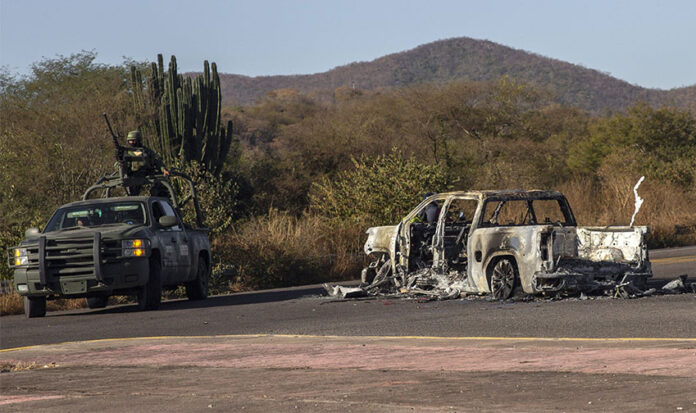The Sinaloa Cartel and the Jalisco New Generation Cartel are among six Mexican organized crime groups set to be designated as foreign terrorist organizations by the United States government, according to U.S. officials who spoke with The New York Times.
The Times reported on Wednesday that it had spoken to five U.S. officials with knowledge of the Trump administration’s “imminent” plans to designate a number of criminal groups with roots in Latin America as terrorist organizations.
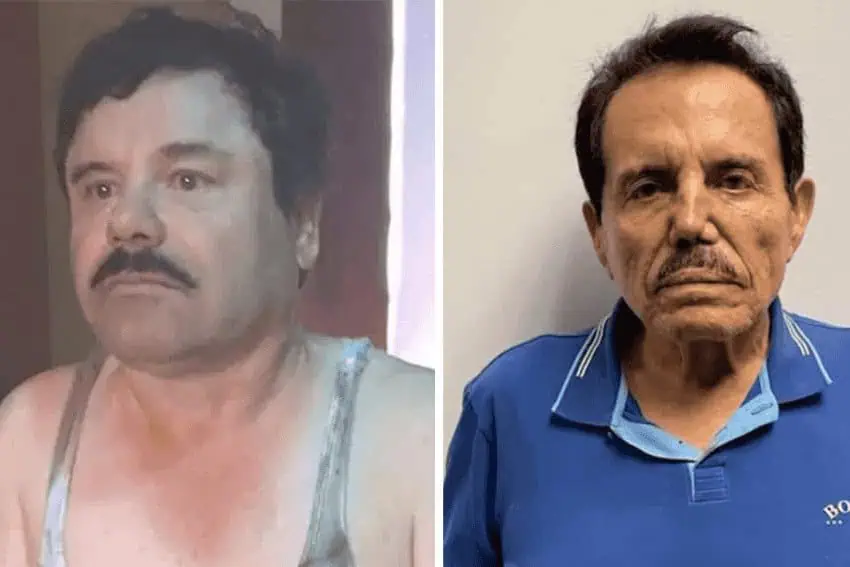
The officials said that the Mexican groups set to be designated are:
- The Sinaloa Cartel
- The Jalisco New Generation Cartel, or CJNG
- The Northeast Cartel
- The Gulf Cartel
- The Michoacán Family (La Familia Michoacana or La Nueva Familia Michoacana)
- The United Cartels (Cárteles Unidos)
Two of the unnamed U.S. officials told the Times that a total of eight criminal groups are expected to be designated as foreign terrorist organizations.
The other two are Tren de Aragua, an organization that originated in Venezuela, and Mara Salvatrucha (MS-13), a gang founded by Salvadoran immigrants in the United States.
They would join groups such as ISIS, Hezbollah, Hamas and Boko Haram on the United States’ list of designated foreign terrorist organizations.
The Times reported that the U.S. State Department “has informed several congressional committees of the upcoming designations, which could be announced by the White House as early as this week.”
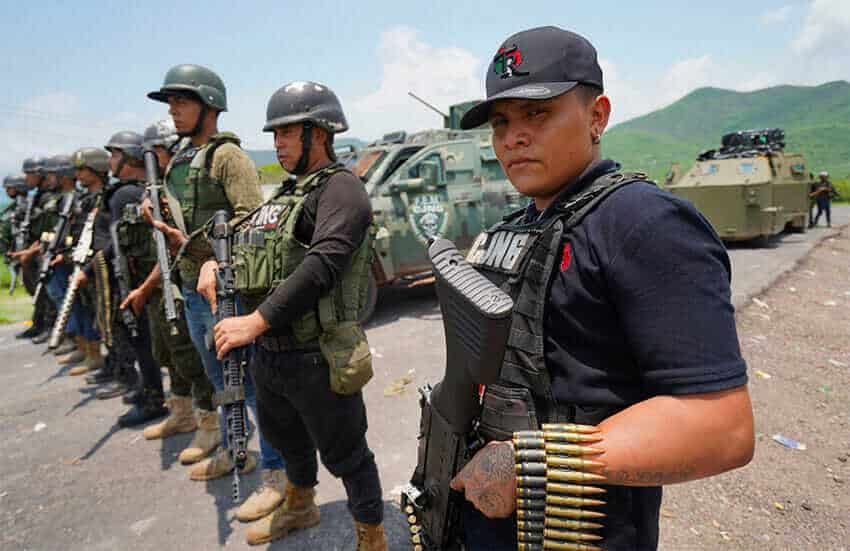
United States President Donald Trump signed an executive order on the first day of his second term directing Secretary of State Marco Rubio to make recommendations on which criminal organizations should be designated as foreign terrorist organizations or specially designated global terrorists.
“People have wanted to do this for years,” Trump said at the time.
“… Mexico probably doesn’t want that, but we have to do it. … They’re killing our people. They’re killing 250,000 to 300,000 American people a year, not 100 [thousand] like has been reported,” he said referring to drug overdose deaths.
The executive order referred to Mexican cartels broadly but specifically named Tren de Aragua and Mara Salvatrucha.
It said that “it is the policy of the United States to ensure the total elimination of these organizations’ presence in the United States and their ability to threaten the territory, safety and security of the United States through their extraterritorial command-and-control structures.”
Asked whether he would consider “ordering U.S. special forces into Mexico” to “take out” cartels, Trump said it “could happen.”
“Stranger things have happened,” said the U.S. president, who last year indicated he was open to using military “strikes” against Mexican cartels.
What will the terrorist designations allow the US government to do?
The New York Times reported that “the designations mean the U.S. government can impose broad economic sanctions on the groups and on people or entities linked to them.”
In recent years, the U.S. government, via the Department of Treasury’s Office of Foreign Assets Control (OFAC), has imposed sanctions on a significant number of alleged members of Mexican cartels.
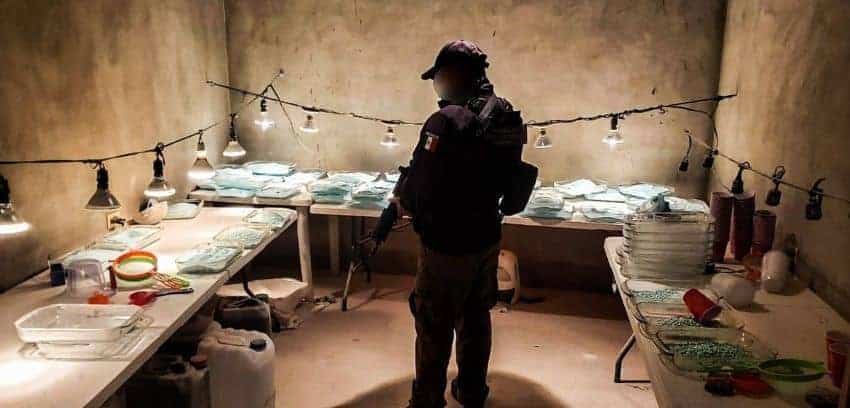
Who are the 6 Mexican criminal groups that could soon be classified as terrorists?
The Sinaloa Cartel and the CJNG are considered Mexico’s two most powerful criminal organizations. They and other Mexican criminal organizations are involved in a range of illicit activities including drug trafficking, people smuggling and extortion.
According to one of the officials who spoke to The New York Times, the net profits from the international operations of Mexico’s cartels could reach up to US $20 billion per year.
Anne Milgram, former head of the United States Drug Enforcement Administration, said in 2023 that the Sinaloa Cartel and the CJNG pose “the greatest criminal threat the United States has ever faced,” given the large quantities of fentanyl they smuggle into the U.S.
The cartels produce the synthetic opioid in Mexico with precursor chemicals illegally imported into the country, mainly from China.
The Sinaloa Cartel was founded by imprisoned drug lord Joaquín “El Chapo” Guzmán, Ismael “El Mayo” Zambada — who was arrested in the United States last July — and others. The “Los Chapitos” and “Los Mayos” factions of the cartel are involved in a bloody dispute that has claimed hundreds of lives in recent months.
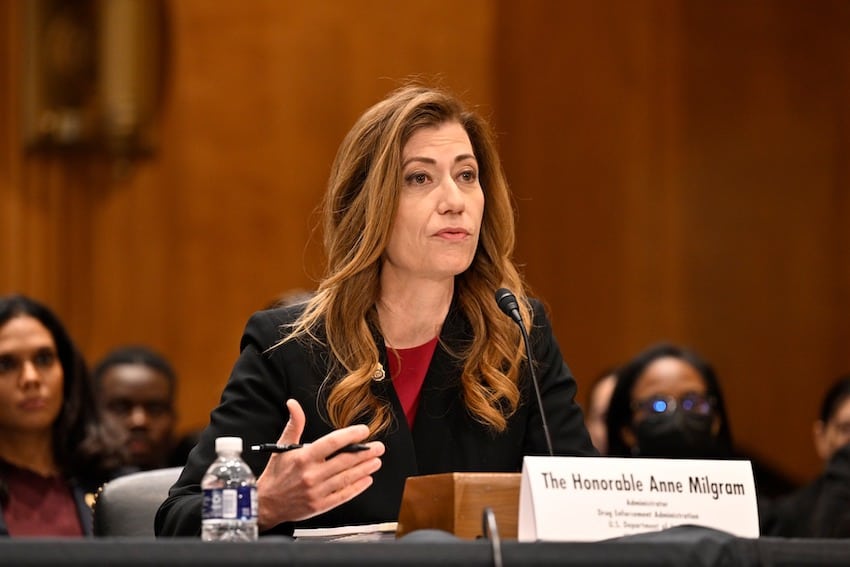
The CJNG, which operates in the majority of Mexico’s 32 states, is led by the elusive Nemesio “El Mencho” Oseguera Cervantes. U.S. authorities are offering a reward of up to US $15 million for information leading to his arrest.
The Northeast Cartel is a splinter group of Los Zetas, which originated as the enforcement arm of the Gulf Cartel in the late 1990s. It is based in the northeastern border state of Tamaulipas.
Carlos Alberto Monsiváis “Bola” Treviño, reported by some news outlets as the No. 1 man in the powerful Northeast Cartel, was detained in Tamaulipas last September.
According to Insight Crime, factions of the Gulf Cartel “control significant areas of the US-Mexico border near the Gulf of Mexico.”
According to the officials who spoke to The New York Times, la Familia Michoacana and Cárteles Unidos are more akin to organized criminal organizations than cartels.
“Those groups tend to act as on-the-ground muscle for Mexico’s cartels to help them spread their territorial control,” the Times said.
“An organized crime group is considered a cartel only if it controls enough of the drug trade to allow it to determine the price of any given narcotic in places like New York or London,” the newspaper said.
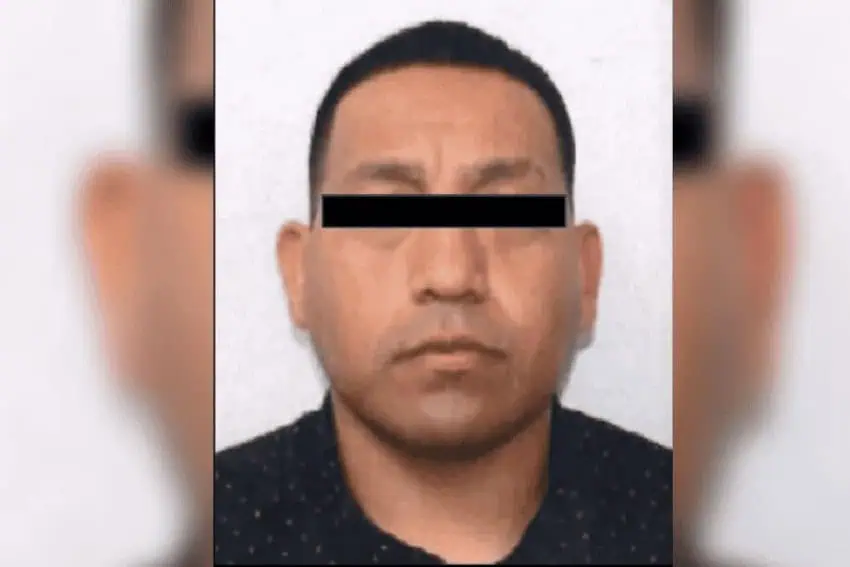
In recent years, the Cárteles Unidos — which includes cells of various criminal groups that include Los Viagras and the Caballeros Templarios — engaged in a long-running battle with the CJNG in the Tierra Caliente region of Michoacán.
In 2022, OFAC designated the Familia Michoacana, which operates in Guerrero, Michoacán and other states, and two of its leaders in accordance with a 2021 executive order — “Imposing Sanctions on Foreign Persons Involved in the Global Illicit Drug Trade.”
“La Nueva Familia Michoacana smuggles illicit drugs into and throughout the United States,” the Department of Treasury said at the time.
The Mexican government’s view on designating cartels as terrorist groups
When Trump declared in December he would designate Mexican cartels as foreign terrorist organizations, President Claudia Sheinbaum told reporters Mexico would never accept any interventionist actions, such as an incursion into Mexico by the U.S. military.
“We will collaborate with and coordinate with the United States, but we will never subordinate ourselves,” she said.
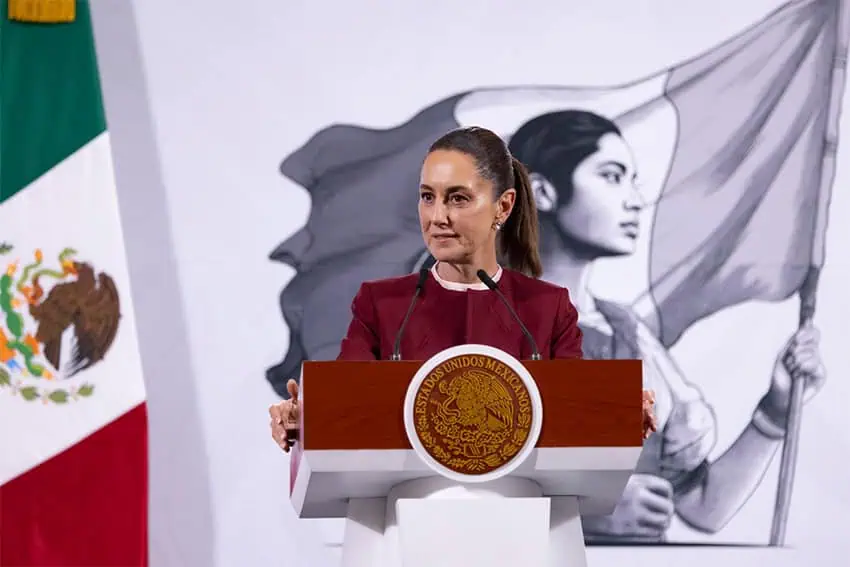
Speaking about the United States’ potential designation of Mexican cartels last month, Sheinbaum declared that “unilateral decisions don’t help — what helps is collaboration.”
At the same Jan. 24 press conference, she said that the government had “a team of lawyers doing an analysis on the different implications” the designation of cartels as terrorist organizations might have.
After Canadian Prime Minister Justin Trudeau announced earlier this month that Canada would designate Mexican cartels as terrorist organizations, Sheinbaum said:
“We don’t believe that the terrorist designation is helpful. There are other forms of cooperation and coordination with respect to our sovereignty that would better assist in combating the fentanyl crisis in the United States.”
According to the New York Times, “Mexican officials have been in drawn-out negotiations with the Trump administration to stave off the terror designation for the cartels and organized crime groups that operate in their country.”
It currently appears that the efforts of the Mexican government — which the Trump administration has accused of having an “intolerable alliance” with drug trafficking organizations — will be to no avail.
With reports from The New York Times
